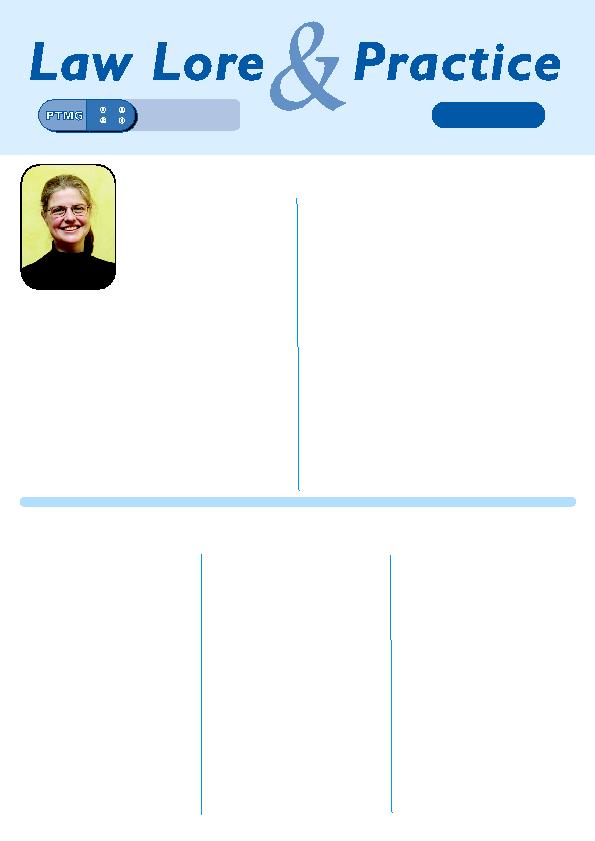
The US Court of Appeals for the Federal
Circuit recently affirmed a decision of the
US Trademark Trial and Appeal Board
(TTAB) holding that PRASTERONE.ORG
and THE PRASTERONE COMPANY
were generic for the following services:
"providing a website featuring scientific
and clinical research information about
investigation medical foods, dietary
supplements or drugs, namely, prasterone
or derivatives or analogs thereof." The
applicant had filed applications to register
these marks on the Supplemental
Register, which is a register for
descriptive marks that do not qualify for
registration on the Principal Register, but
otherwise are capable of distinguishing an
applicant's goods or services, ordinarily
through sufficient use. The Supplemental
Register does not provide all the same
advantages as the Principal Register, but it
does allow a mark to be registered. If,
however, a mark is found to be generic
and thus incapable of distinguishing an
applicant's goods or services regardless of
the amount of use, then it will be refused
registration on both the Principal and the
Supplemental Registers. In this case, the
Appeals Court agreed with the TTAB that
these marks were generic for the
identified services, concluding that the
addition of generic terms such as .ORG
and COMPANY did not alter the generic
meaning of the marks. Thus, the Court
affirmed the decision to refuse
registration of these marks on the
Supplemental Register.
In another recent decision, the TTAB
found that the mark ACTRX for dietary
and nutritional supplements, which the
applicant stated will be sold only as
prescription medicines, was confusingly
similar to the prior mark ACT (and
related marks) for an anti-cavity mouth
rinse sold over-the-counter. In reaching
this conclusion, the TTAB found that the
RX element of the applicant's mark would
be understood as referring to "a medical
prescription" and was therefore a weak
element of the mark. The TTAB further
noted that even if non-prescription
supplements were sold under the ACTRX
mark, the RX element would have a
suggestive connotation "indicating that the
supplements are of a greater strength or
efficacy, similar to that of a prescription
product." The TTAB further concluded
that even though the applicant's goods
would be obtained at a prescription
counter and the opposer's goods are sold
over-the-counter, the same class of
consumers, namely, the general public,
would encounter both goods. Therefore,
this difference did not eliminate the
likelihood of confusion.
During a recent BBC Radio 4 edition of
Law in Action, the former Court of
Appeal Judge, The Right Hon. Professor
Sir Robin Jacob declared that copyright
was a 19th century "tax on knowledge".
He claimed that unlike Patents whose
limited lifespan stimulates innovation, this
other arm of intellectual property does
nothing to encourage people to create or
to better perform works of art. His interview was a response to
the 2011 European Union Directive aligning performing rights
with copyright. A challenging point of view which would
certainly have found favour with Maurice Ravel, the French
composer.
Ravel is the subject of a new play, based on the book of the last
ten years of his life which is currently receiving excellent reviews
here in Paris. Ravel is quoted as having been very disparaging to
Paul Wittgenstein the Austrian one armed pianist, following a
highly modified interpretation of the composer's piano concerto
for left hand, commissioned by the pianist himself. The Austrian's
defence (that the concerto needed improving) may possibly have
found favour with performing arts' associations who
understandably defend an entirely favourable view of the
provisions contained within the Directive. Their support is
particularly appreciated by session musicians who often find
themselves facing delayed percentage payments from record
companies rather than down payments for hours played.
Neither copyright nor any other intellectual property right was
on my mind when, as a teenager, I like millions of others of my
generation around the world, stayed up all night to watch Live
Aid and a few years later in June 1988 the Nelson Mandela 70th
Birthday Tribute. Performing artists at that stage in my political
awakening were the vehicles for a strong message and we all
believed at the time that our viewing had provided the much
needed popular surge of public opinion which led to Mandela's
release some twenty months later.
Listening this week to the many moving tributes, commentaries
and memorial services about that extraordinary man, I am
reminded that both those global events took place in a world
before social media. Turning on the radio and watching the
television were the only means available to take part in such
momentous occasions. Not for us Twitter or Facebook but
rather the reality of shared emotions the next morning at school.
Whichever artistic medium you chose, whether it be virtual or
good old fashioned Christmas cards sent by snail mail, may you
all be able to celebrate the holiday season in style!
Vanessa
TM
TM
TM
TM
TM
TM
Pharmaceutical
Trade Marks Group
Pharmaceutical
Trade Marks Group
Dec 2013
Editorial: A song for all seasons
US Law Update
James Thomas, Thomas Trademarks and Copyright Legal Services, USA

